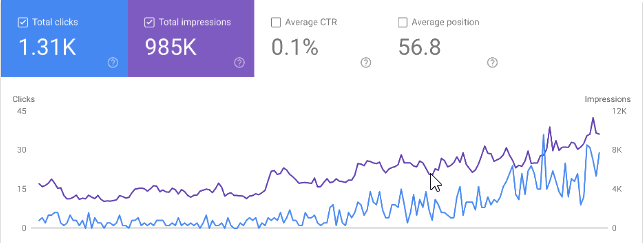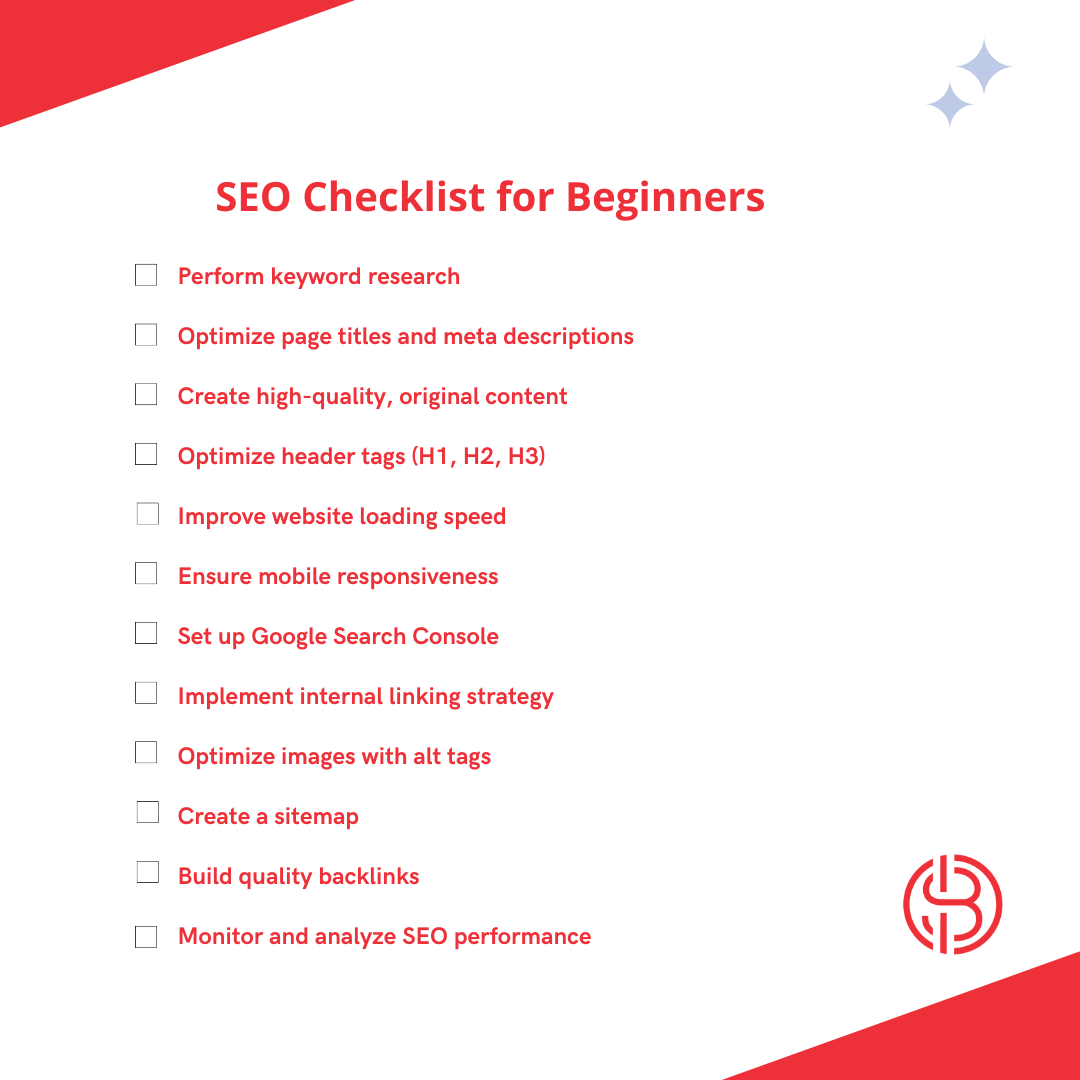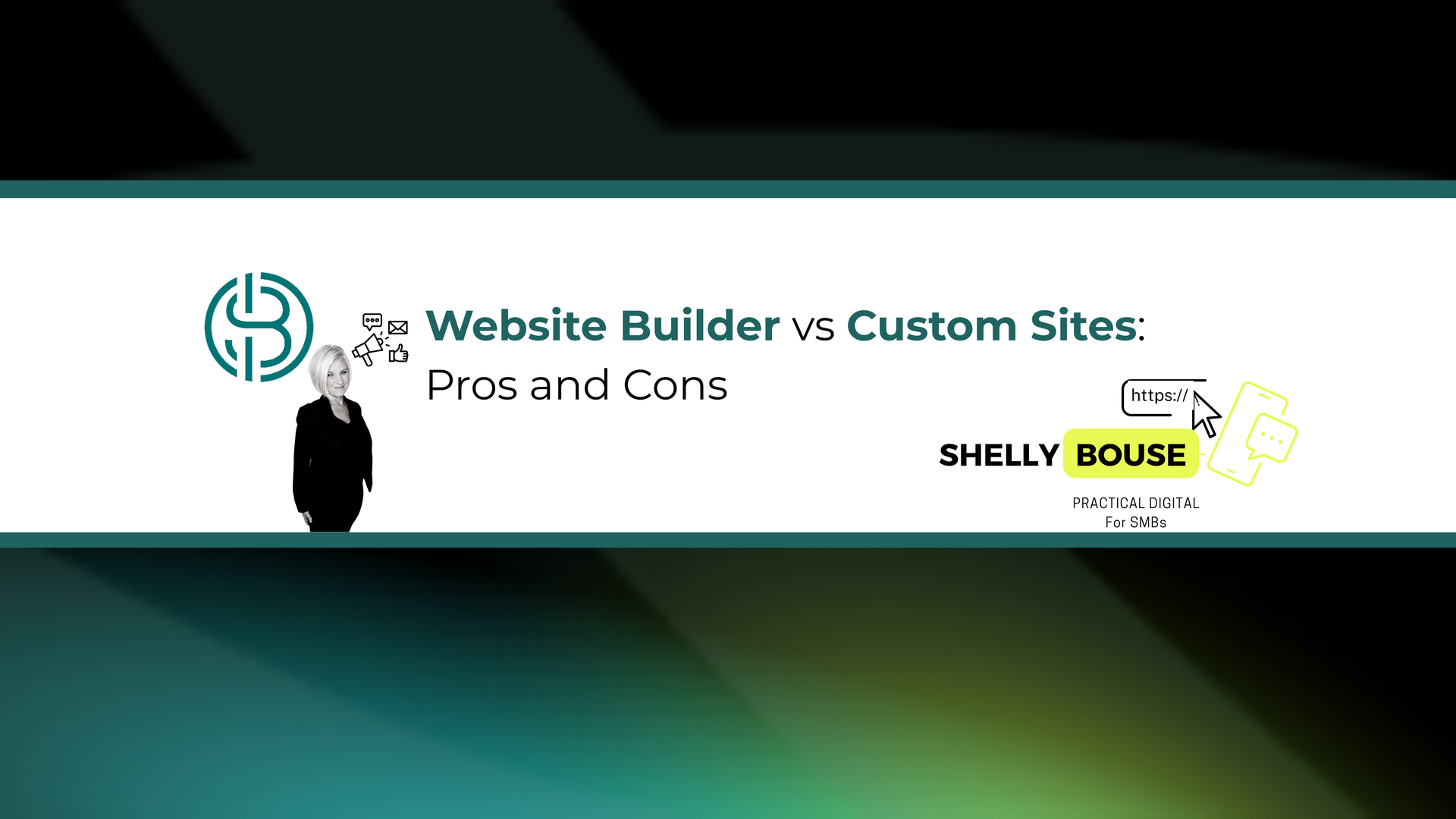Small Business SEO Marketing: Supercharge Your Strategy
Shelly Bouse • April 14, 2025
Small Business SEO Marketing: Turbocharge Your Success

Key Highlights
Enhance your small business's online visibility and reach through an effective SEO strategy . Learn the importance of SEO for small business growth in the digital age, focusing on brand awareness and organic traffic.
Utilize essential SEO tools like Google Analytics and Search Console to track and improve your website's performance.
Set realistic SEO goals aligned with your target audience and business objectives for long-term success.
Implement step-by-step SEO strategies including keyword research, on-page optimization , and off-page techniques for higher search engine rankings.
In today’s digital world, a strong online presence is very important for any small business that wants to succeed. An effective SEO strategy can help you grow your business a lot. By learning the basics of SEO and using smart tactics, you can improve your online presence. This way, you can draw in more potential customers and reach your business goals. This guide will give you the knowledge and tools you need to boost your small business SEO and do well in the tough online market.
Understanding SEO and Its Importance for Small Businesses

SEO, which stands for search engine optimization, helps make your website easier to find in search results. It involves using keywords wisely, preparing your website's setup, and creating good backlinks. This work boosts your rank in search engine results pages (SERPs). For small businesses, having a strong SEO strategy is a must, not just a choice.
If you don't have a good plan for SEO, your website could get lost among many other pieces of online content. This makes it hard for potential customers to see you.
SEO is the way to improve your website and online content so it shows up higher in search results like Google Search. When people look for a product or service you provide, you want your website to be one of the top results.
Search engines have complex methods to check websites, study their content, and see how they relate to what someone is searching for. By using relevant keywords in your website content naturally, you help search engines understand what your site is about and how to rank it.
The higher you appear for specific keywords, the more people will see your site. This leads to more potential customers.
In today's digital world, many people use search engines to find products and services. Because of this, having a strong online presence is very important for small business growth. SEO is key to building that presence.
When you improve your website's rank in search results, you boost your online visibility. This helps you connect with a larger audience. More visibility means more organic traffic to your website. This creates more chances for potential customers to find your brand and what you offer.
In the end, good SEO can boost brand awareness, increase customer engagement, and help your business grow.
If you don't have a good plan for SEO, your website could get lost among many other pieces of online content. This makes it hard for potential customers to see you.
The Definition of SEO and How It Works
Search engines have complex methods to check websites, study their content, and see how they relate to what someone is searching for. By using relevant keywords in your website content naturally, you help search engines understand what your site is about and how to rank it.
The higher you appear for specific keywords, the more people will see your site. This leads to more potential customers.
Why SEO is Crucial for Small Business Growth in the Digital Age
In today's digital world, many people use search engines to find products and services. Because of this, having a strong online presence is very important for small business growth. SEO is key to building that presence.
When you improve your website's rank in search results, you boost your online visibility. This helps you connect with a larger audience. More visibility means more organic traffic to your website. This creates more chances for potential customers to find your brand and what you offer.
In the end, good SEO can boost brand awareness, increase customer engagement, and help your business grow.
Preparing for SEO Success: What You Need Before You Start
Before you start your SEO journey, it is important to build a strong base for success. This means having the right tools and resources. You should also set realistic goals and understand your target audience well.
Doing this groundwork makes sure your SEO work is focused and effective.
Fortunately, there are many SEO tools and resources for small businesses, and many are free. Google provides some great tools like Google Analytics. This tool gives useful information about your website traffic. Google Search Console helps you check how well your website is doing in search results. Google Business Profile is also important for managing your online business information.
Besides these free tools, there are many other SEO software choices. They offer features like keyword research, competitor analysis, and backlink tracking.
Using the right SEO tools can make your work easier. It also gives you important data to help you decide better.
The main goal of SEO is to rank higher in search results. However, it is important to set realistic goals that you can measure. First, find out who your target audience is. Who do you want to reach with your SEO efforts?
Once you know your target audience well, connect your SEO goals to your business goals. Do you want to raise brand awareness, get leads, or boost sales?
By defining clear and measurable goals, known as SMART goals, you will create a plan for your SEO strategy. This will also help you track your progress effectively.
Now that you know how important SEO is and are ready to succeed, let's look at some easy ways to improve your small business SEO. Keep in mind that SEO takes time and you need to be patient. It also needs you to be consistent and ready to change when necessary.
But the benefits are definitely worth the work.
A basic rule of SEO is knowing your
target audience
and the market you are in. Who are your ideal customers? What do they need, and what problems do they face?
Doing good market research will show you the keywords your target audience uses when looking for businesses like yours. Think about their age, interests, and online habits.
When you understand your audience, you can adjust your website content and SEO strategy to connect with them better. This will boost your chances of bringing the right visitors to your site.
Keeping an eye on what your competitors are doing with SEO can help you a lot. Start by finding your main competitors and looking closely at their websites. Pay attention to their content and keyword plans.
What keywords are they using? What type of content are they making? You can use tools like SEMrush and Ahrefs to help you analyze your competitors.
When you know what your competitors do well and where they might struggle, you can find ways to stand out. This will help you create a unique place for your business online.
Doing this groundwork makes sure your SEO work is focused and effective.
Essential SEO Tools and Resources for Small Businesses
Fortunately, there are many SEO tools and resources for small businesses, and many are free. Google provides some great tools like Google Analytics. This tool gives useful information about your website traffic. Google Search Console helps you check how well your website is doing in search results. Google Business Profile is also important for managing your online business information.
Besides these free tools, there are many other SEO software choices. They offer features like keyword research, competitor analysis, and backlink tracking.
Using the right SEO tools can make your work easier. It also gives you important data to help you decide better.
Setting Realistic SEO Goals and Objectives
The main goal of SEO is to rank higher in search results. However, it is important to set realistic goals that you can measure. First, find out who your target audience is. Who do you want to reach with your SEO efforts?
Once you know your target audience well, connect your SEO goals to your business goals. Do you want to raise brand awareness, get leads, or boost sales?
By defining clear and measurable goals, known as SMART goals, you will create a plan for your SEO strategy. This will also help you track your progress effectively.
Beginner's Guide to Implementing Effective SEO Strategies
Now that you know how important SEO is and are ready to succeed, let's look at some easy ways to improve your small business SEO. Keep in mind that SEO takes time and you need to be patient. It also needs you to be consistent and ready to change when necessary.
But the benefits are definitely worth the work.
Understanding Your Audience and Market
Doing good market research will show you the keywords your target audience uses when looking for businesses like yours. Think about their age, interests, and online habits.
When you understand your audience, you can adjust your website content and SEO strategy to connect with them better. This will boost your chances of bringing the right visitors to your site.
Identifying and Analyzing Competitors’ SEO Strategies
What keywords are they using? What type of content are they making? You can use tools like SEMrush and Ahrefs to help you analyze your competitors.
When you know what your competitors do well and where they might struggle, you can find ways to stand out. This will help you create a unique place for your business online.
Step-by-Step Guide to Kickstarting Your Small Business SEO

Let's simplify the process of getting your small business SEO going with clear steps. Keep in mind that SEO takes time. It's not something that happens quickly. Be patient and stay consistent. Focus on creating valuable content for your target audience.
Keywords are the foundation of any SEO strategy. They are the terms and phrases people use to search for information, products, and services online.
Thorough keyword research is essential to identify relevant keywords for your business. Utilize tools like Google Keyword Planner to discover keywords related to your industry and target audience.
Focus on a mix of:
Step 1: Conduct Comprehensive Keyword Research
Keywords are the foundation of any SEO strategy. They are the terms and phrases people use to search for information, products, and services online.
Thorough keyword research is essential to identify relevant keywords for your business. Utilize tools like Google Keyword Planner to discover keywords related to your industry and target audience.
Focus on a mix of:
By incorporating these keywords naturally throughout your website content, you signal to search engines what your site is about, improving your chances of ranking higher for those terms.
Step 2: Optimize Website Structure and Design for SEO
Your website structure and design are very important for SEO. A well-organized website makes it easy for search engines to find and understand your content. This helps you rank higher in search results.
Make sure your website has a clear structure. Different pages should be arranged logically and linked properly.
A good website must also look nice, be easy to use, and work well on mobile devices. This way, it provides a good user experience for everyone.
Step 3: Create Quality Content That Addresses User Intent
Content is very important in SEO. You need to create high-quality and interesting content that meets what users are looking for. This helps draw people to your website and keep them coming back.
When users search for a keyword, they usually have a certain goal in mind. Your content should help meet that goal by giving them useful information, answering their questions, or solving their issues. By regularly sharing good content that connects with your target audience, you make your website a valuable resource. This will boost its authority and improve its ranking on search engines.
Step 4: Implement On-Page SEO Best Practices
Meta descriptions are short texts below the title tag in search results. They give a quick overview of what your page is about. Use them to attract users to click on your website.
Step 5: Build Authority with Off-Page SEO Techniques
Off-page SEO is about actions outside your website that can affect your search engine ranking. One good way to do off-page SEO is link building. This means getting backlinks from other trustworthy websites.
Backlinks are like votes of confidence from those websites. They tell search engines that your content is valuable and reliable. You can earn backlinks in different ways, such as:
Writing guest posts on websites that are relevant to your field. Contacting journalists and bloggers to explore partnerships.
Joining online forums and communities that relate to your area. Building a strong backlink profile can really boost your website's authority and its search engine ranking.
Step 6: Utilize Local SEO Tactics for Geo-Specific Visibility
For small businesses that want to reach local customers, local SEO is key. It helps you improve your online presence so you can be seen more often in local search results.
Start by making a Google Business Profile listing. Make sure to include correct business information like your address, phone number, and website. Ask your customers to leave reviews. Positive reviews can help boost your rankings in local searches.
Also, make sure your website has local keywords. Use citations too. This means mentioning your business name, address, and phone number. Doing this will help show your presence in a specific area.
Monitoring, Measuring, and Maintaining SEO Performance

SEO is not just a one-time task. It is an ongoing job. You need to keep checking your work, measure how it’s doing, and make changes when necessary. By regularly watching your SEO results and adjusting your plan, you can keep your strategy successful. This helps your website stay high in the rankings.
Monitoring key performance indicators (KPIs) is very important for measuring how well your small business is doing with SEO. Tracking things like organic traffic, search rankings, conversion rates, and bounce rates gives you useful information about your SEO strategy. Using tools like Google
Analytics and Google Search Console can help you see what is working and what needs to be better. When you focus on the right KPIs, you can make smart choices and improve your SEO efforts for better online visibility and more website traffic. Keeping an eye on KPIs is key for ongoing growth and staying ahead in the tough online market.
Conducting regular SEO audits is very important. It helps keep your website optimized. It also makes sure your SEO strategy follows best practices. An SEO audit looks closely at your website's technical parts, content, and backlinks.
This process can find any technical problems, missing content, or areas that need improvement. You can find SEO audit tools and checklists online to help you. By fixing the issues found during an audit, you can keep your website healthy and performing well in search results.
Key Performance Indicators (KPIs) for Tracking SEO Success
Monitoring key performance indicators (KPIs) is very important for measuring how well your small business is doing with SEO. Tracking things like organic traffic, search rankings, conversion rates, and bounce rates gives you useful information about your SEO strategy. Using tools like Google
Analytics and Google Search Console can help you see what is working and what needs to be better. When you focus on the right KPIs, you can make smart choices and improve your SEO efforts for better online visibility and more website traffic. Keeping an eye on KPIs is key for ongoing growth and staying ahead in the tough online market.
Regular SEO Audits: Keeping Your SEO Strategy on Track
Conducting regular SEO audits is very important. It helps keep your website optimized. It also makes sure your SEO strategy follows best practices. An SEO audit looks closely at your website's technical parts, content, and backlinks.
This process can find any technical problems, missing content, or areas that need improvement. You can find SEO audit tools and checklists online to help you. By fixing the issues found during an audit, you can keep your website healthy and performing well in search results.
Advanced SEO Tips and Tricks for Small Businesses
After you have built a strong SEO base, think about trying some advanced methods to boost your work even more. These tips can help you stay ahead of others and gain a good advantage in the fast-changing online world.
Social media signals might not change your search engine rankings directly. However, they help build brand awareness and can drive traffic to your website.
Being active on social media can boost your online visibility. It can also attract potential customers and create backlinks to your site. Share interesting content, talk with your followers, and join discussions in your industry. Doing this can help you reach more people and improve your SEO efforts.
In today's world, most people use their phones to browse the internet. It's very important to make sure your website works well on mobile devices. Google gives higher rankings to websites that are mobile-friendly. If your site isn't responsive, it can hurt your SEO.
You should use responsive design techniques. This way, your website will change to fit different screen sizes. This helps provide a good user experience, no matter what device people use.
Test your website's mobile-friendliness with Google's Mobile-Friendly Test tool. Then, make any changes needed to improve it for mobile users.
When doing SEO, it's simple to make mistakes that can slow you down. If you know these common problems, you can avoid them. This will help keep your SEO strategy on track.
A key part that many small businesses miss in their SEO plans is user experience (UX). If you ignore UX, your site may not do well in Google search results. This can also affect how potential customers engage with you. To improve UX, pay attention to your website structure, make sure it works well on mobile devices, and check your page loading speed. Your content should be easy to read and simple to navigate. Doing this will help keep users on your site and make them happy. Using good UX principles can help your SEO and also improve the online experience for visitors. This can lead to more traffic and more conversions. So, do not underestimate how important a good user experience is for your SEO strategy.
For businesses with a physical store or those that want to attract local customers, not focusing on local SEO is a big mistake. If you don’t improve your online presence for local searches, you lose valuable leads and potential customers nearby.
You should claim and improve your Google My Business profile. Make sure your business information is the same on all online directories. Also, ask for customer reviews to boost your local SEO visibility.
In conclusion, improving your small business SEO is very important for success online. You should know your audience well. Also, create quality content and use good strategies. This way, you can increase your online visibility and help your business grow. It’s a good idea to check and measure your SEO performance often. This helps you make smart choices based on real data. Stay away from mistakes like ignoring user experience and local SEO. Keep up with better methods, like using social media and making sure your site works well on mobile. To get a plan just for your business, sign up for a free trial or consultation today and boost your SEO.
Absolutely! Big companies might have more money to spend. Still, small businesses can do well in SEO. They should focus on local SEO and niche keywords. They can also build a strong online presence by using quality content and engaging with their audience.
Regular updates are important for SEO. Try to add new content and refresh what you already have. This will help keep your website relevant and improve its search engine results ranking.
An SEO agency can offer help and skills and ultimately better, faster results. Small businesses can do their SEO on their own. They just need the right tools, the right knowledge, and the time commitment to stick with it.
Use Google Search Console to keep an eye on key metrics. You should look at things like organic traffic, how many leads you generate, and conversions. This will help you see the return on investment (ROI) for your SEO work.
Start by figuring out who your target audience is. Then, do detailed keyword research. Finally, improve your website content and layout so that it matches those keywords.
Leveraging Social Media to Enhance SEO Efforts
Social media signals might not change your search engine rankings directly. However, they help build brand awareness and can drive traffic to your website.
Being active on social media can boost your online visibility. It can also attract potential customers and create backlinks to your site. Share interesting content, talk with your followers, and join discussions in your industry. Doing this can help you reach more people and improve your SEO efforts.
Mobile Optimization: Ensuring Your Site Is Mobile-Friendly
In today's world, most people use their phones to browse the internet. It's very important to make sure your website works well on mobile devices. Google gives higher rankings to websites that are mobile-friendly. If your site isn't responsive, it can hurt your SEO.
You should use responsive design techniques. This way, your website will change to fit different screen sizes. This helps provide a good user experience, no matter what device people use.
Test your website's mobile-friendliness with Google's Mobile-Friendly Test tool. Then, make any changes needed to improve it for mobile users.
Common SEO Mistakes Small Businesses Should Avoid
When doing SEO, it's simple to make mistakes that can slow you down. If you know these common problems, you can avoid them. This will help keep your SEO strategy on track.
Overlooking User Experience (UX) in SEO Strategy
A key part that many small businesses miss in their SEO plans is user experience (UX). If you ignore UX, your site may not do well in Google search results. This can also affect how potential customers engage with you. To improve UX, pay attention to your website structure, make sure it works well on mobile devices, and check your page loading speed. Your content should be easy to read and simple to navigate. Doing this will help keep users on your site and make them happy. Using good UX principles can help your SEO and also improve the online experience for visitors. This can lead to more traffic and more conversions. So, do not underestimate how important a good user experience is for your SEO strategy.
Ignoring the Importance of Local SEO Elements
You should claim and improve your Google My Business profile. Make sure your business information is the same on all online directories. Also, ask for customer reviews to boost your local SEO visibility.
In conclusion, improving your small business SEO is very important for success online. You should know your audience well. Also, create quality content and use good strategies. This way, you can increase your online visibility and help your business grow. It’s a good idea to check and measure your SEO performance often. This helps you make smart choices based on real data. Stay away from mistakes like ignoring user experience and local SEO. Keep up with better methods, like using social media and making sure your site works well on mobile. To get a plan just for your business, sign up for a free trial or consultation today and boost your SEO.
Frequently Asked Questions
Can Small Businesses Compete with Big Companies in SEO?
Absolutely! Big companies might have more money to spend. Still, small businesses can do well in SEO. They should focus on local SEO and niche keywords. They can also build a strong online presence by using quality content and engaging with their audience.
How Often Should I Update My Website for SEO?
Regular updates are important for SEO. Try to add new content and refresh what you already have. This will help keep your website relevant and improve its search engine results ranking.
Is It Necessary to Hire an SEO Agency for Small Business SEO?
An SEO agency can offer help and skills and ultimately better, faster results. Small businesses can do their SEO on their own. They just need the right tools, the right knowledge, and the time commitment to stick with it.
How Can I Measure the ROI of My SEO Efforts?
Use Google Search Console to keep an eye on key metrics. You should look at things like organic traffic, how many leads you generate, and conversions. This will help you see the return on investment (ROI) for your SEO work.
What Are the First Steps in Creating an SEO Strategy for a New Business?
Start by figuring out who your target audience is. Then, do detailed keyword research. Finally, improve your website content and layout so that it matches those keywords.












